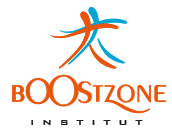The program of Techonomy , as well as the various sessions « live » , can be found at http://www.techonomy.com/. The twitter comments can be found at #techonomy12 .
This post is narrow (it contains less than 10% of my notes, themselves short) and biased, (it only reflects my major personal takes of the day in the field of management and strategy implications). What is said here was not necessary said in the various discussions but is what I decided to hear, interpret and share. The order of the point is more or less random.
This day was dealing a lot with big data and data handling.
Here my laundry list:
- “Mobile” is as much a game changer as Social networks, ADSL, browser, Windows were in their time. Will executive teams realize it fast enough?
- Jobs is a discussion constantly intertwined with the technology one but no consensus emerges yet, namely on the question of whether “technology” is able to create jobs as fast as “technology” destroys them.
- Will Watson (the IBM most intelligent computer) be in our pocket in 10 years? Implications of such an available artificial intelligence are mind boggling for individuals and corporations.
- Thanks to Big Data, machines are better at seeing patterns and therefore predicting events. But finding the so-what for these patterns remains a management issue.
- Big data allows real time or nearly real time decisions, it will require organization responsiveness capabilities to be close to the military or firemen ones, are we ready?
- On health care Big Data will improve a lot drugs releases on the market as well ad drug effectiveness since it will be possible to segment the users and sort out those who could suffer from side effects as well as those who could benefit most from the drug. Drug will become “personal”, not only the prescription.
- Many participants to Techonomy suffer from a new disease: the “BigData will solve all the world’s problems… “ syndrome.
- The “predictive enterprise” might well be the new fashion, after enterprise 2.0, it will designate those companies finding business opportunities out of the data they get and produce. But to become “predictive enterprises” corporations will have to go through 4 phases for assimilating Big Data: I Understanding what it is; II: Experiment with it; III build a competitive advantage out of it (for the most advanced companies); IV Become accountable if they have NOT used Big Data for their decision making.
- IT departments will use Big Data as a way to get internal influence power back, they will argue that data has to be centralized (not proven) and that only them can manipulate them properly because it is an IT science issue (obviously only partially true). IT might be counter-productive since the methods, the visions, the attitude toward data has little in common between traditional data handling by a CIO and Big Data handling.
- Data scientists will be the new corporate heroes, well paid, arrogant… In a way they will remind us the financial engineering experts of the 90’s and the marketing experts of the 70’s and 80’s…
- Big Data and collaboration are two closely interrelated tools because Big Data requires multi-disciplinarity and creativity.
- Health care, education, are the most important industries mentioned for Big Data impact.
- Managers will have to handle two uncomfortable approaches to data: I the overabundance of available data via the Commons (see my earlier post on this subject, but in French, here). II The relevant but proprietary data they need but that are owned by the data giants creating an oligopoly on data, among them the most powerful being the Fantastic Four: Google, Amazon, Facebook, Apple.
- One should expect more antitrust issues for the Fantastic Four
- All companies must think of their data, codified or not, organized or not, as one of their major assets for the next few years, they should work on them, they should hire data scientists.
More to come…



